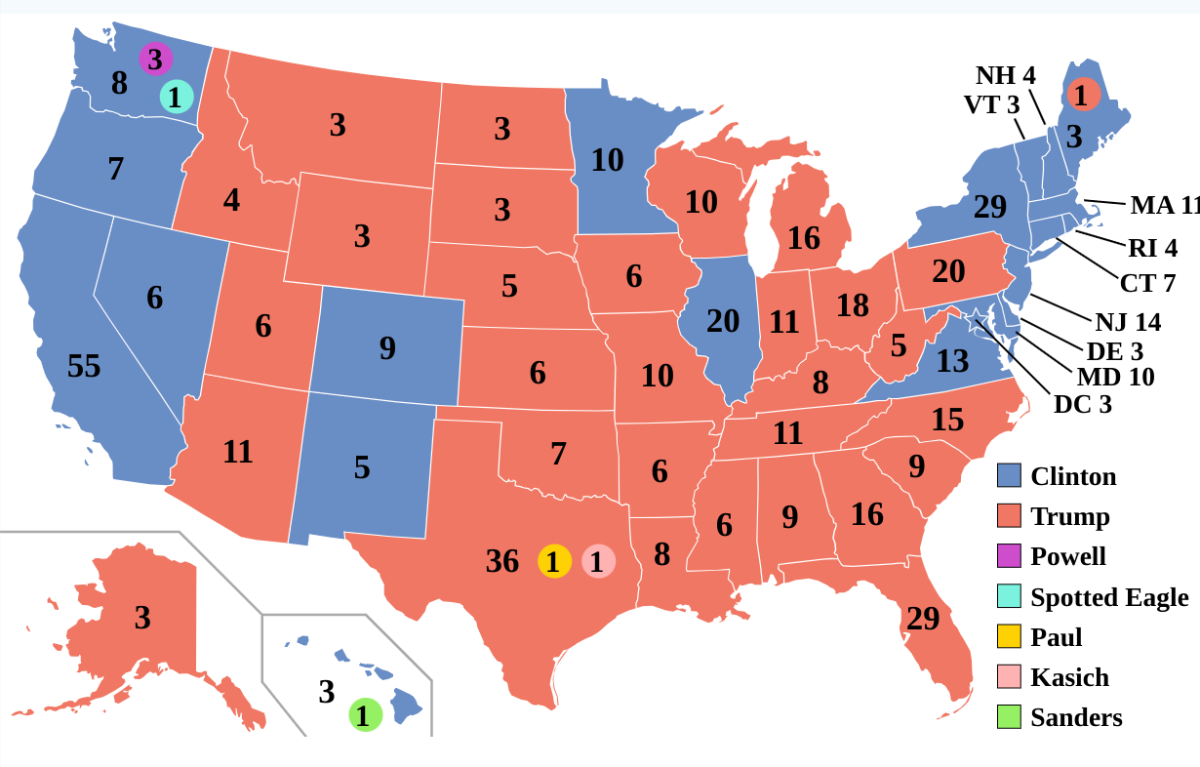During the 2016 presidential election, 63 million Americans voted for Hillary Clinton, whereas 66 million voted for Donald Trump. Why did the latter candidate win the title of president? The confusing and often unreliable system of electing the U.S. president is called the Electoral College.
In the Electoral College, each state receives a certain number of electoral votes based on its population. When a citizen votes, they are not directly voting for the president. Instead, they are voting for the candidate their state should allocate electoral votes to. Most states use a winner-takes-all system, where the winner of the state election collects all the electoral votes. In today’s current distribution of electoral votes, a candidate can become president even if only 22% of Americans support them. In fact, six presidential candidates have won despite obtaining less than half of the popular vote. There has been about a 15% chance for the president to be elected like this, which are dangerously high odds for our country’s future.
However, the Electoral College is excellent at producing a clear winner of the presidential election. If neither candidate gains a majority of the popular vote, there could be a lot of pressure for a runoff election if there was no Electoral College. The system also ensures the voices of the smaller states are not drowned out by biggerstates. Furthermore, by granting the voting power to states, the Electoral College helps prevent misinformed voters from turning the tables.
Although the Electoral College designates a winner, the methodology of choosing that winner is flawed at best. For example, faithless electors are electors who choose a candidate not in their party, meaning that they can completely ignore the vote of their constituents. The potential for this corruption can completely change who is elected, determining the future of our country and every citizen in it. Further, the Electoral College doesn’t inhibit misinformed voting; it simply adds an extra step to the process. It may even make elections worse, as some voters are not properly informed on what their vote for president means.
The Electoral College is an intriguing system with numerous consequential drawbacks. Since it is part of the 12th Amendment, the Electoral College is very hard to remove, as the only way to alter an amendment is another amendment. But until legislators pass a new amendment, we are stuck with an election system that has a dangerously high chance of choosing the wrong president, negatively influencing the country forever.


Mickey Mouse • Nov 7, 2024 at 3:25 pm
Good job